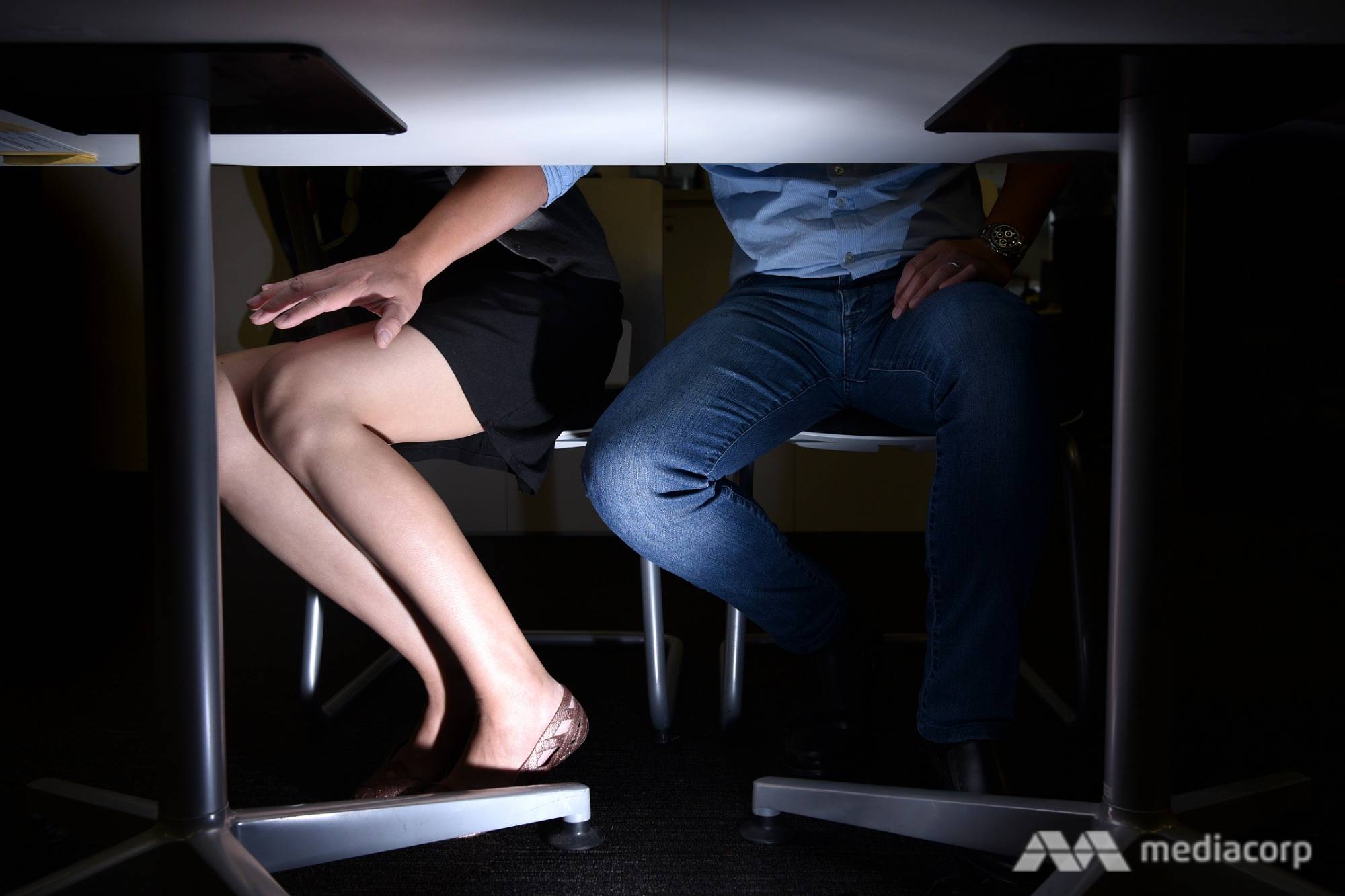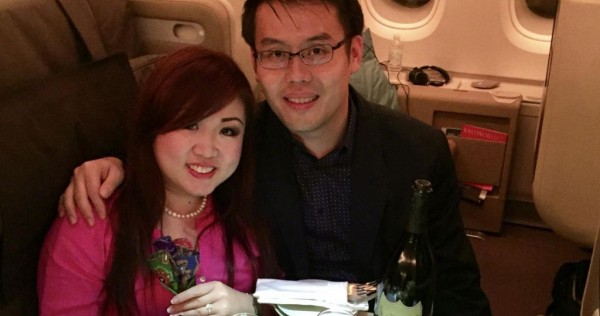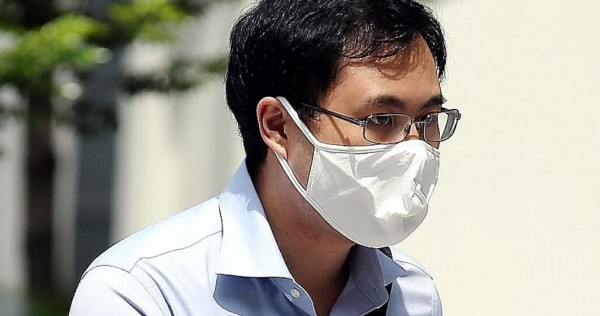SINGAPORE: After her third visit to the clinic for chest pains, which led her to be referred to a hospital’s accident and emergency department, Adriana (not her real name) decided that she had had enough. She quit her job.
Her first two visits were for headaches from a lack of sleep and stress, and for gastric pains from skipping meals and taking painkillers.
“My GP (general practitioner) said to me ‘nowadays, people either get COVID-19 and suffer, or they don’t and suffer while working’.
“I even had to take a work call before going to the A&E because we were just really short-handed,” said Adriana, in her mid-20s, who declined to reveal her real name.
Adriana, who works in the communications industry, was told after a series of tests that her chest pains were a symptom of anxiety and she had experienced a panic attack.
Then, there’s 25-year-old Stella (not her real name) who also made the difficult decision to resign from her job in the food and beverage industry because her neverending work was starting to affect her mental health.
Stella said she would work 12 to 15 hours a day, from the moment she woke up until past midnight where she went straight to bed. She was also unable to take breaks during the day and was forced to skip many meals.
With “homeworking” taking root amid the COVID-19 pandemic, many employees in Singapore find themselves being pushed to the limits, as the boundaries between work and home become blurred.
READ: Job security and working from home: MPs share their thoughts on how workers, families and companies can move forward after COVID-19
And as some experts warn against upsetting the work-life balance — which remains the holy grail for many — one Member of Parliament (MP) has recently called for a law to guarantee that an employee’s personal time is safeguarded.
For Adriana, she had tried to hold on to her job for as long as she could, given the economic downturn.
Ultimately, she realised that she could no longer go on working under such conditions.
“I was working seven days a week. I’d work past midnight and during meal times, often starting work at 9am the next day despite staying up till 4am,” said Adriana.
While she had worked late nights previously, working until 4am became commonplace only after she began working from home.
Days dragged on and were filled with unscheduled calls because being home meant that her colleagues and clients assumed she would be available for work calls at all times. Her bosses also thought that work could be delivered within tight timelines as everything was done digitally.
“If we took leave to rest or were on medical leave, they assumed we had nothing to do because we’re home anyway, and would still ask us to follow up on work,” said Adriana.
She often found herself fretting about timelines, and would even dream about work, waking up in a panic. She also found herself in a bad mood and distanced herself from her parents and friends when work piled up.
READ: COVID-19 impact on mental health must be managed, as more people face stress and disruption: PM Lee
“When we transitioned to working from home, it was like I lost my support system. I was suddenly working alone at home without my colleagues, everything was done remotely and the long hours didn’t help,” said Adriana, who has yet to find a new job.
Stella said that her work environment was positive and ideal before remote working began. But once it started, “there were no lines drawn and I basically worked around the clock, even on weekends”.
“It was horrible because I had to react to a lot of issues that had to be resolved right away with our partners,” she said.
Stella said that she had voiced out these issues many times but her managers were just as, or even more, overworked in trying to keep the company afloat.
“Our immediate superiors were too busy to care about us and we had deadlines and targets to hit. The only way to fulfill them was to work overtime,” said Stella, adding that a few of her colleagues had also resigned due to burnout.
Adrian Choo, founder of career strategy consulting firm Career Agility International, noted that if employees are continually stretched, there will be fatigue followed by burnout.
Work-life balance is also one of the key reasons why employees leave, and if companies continue to overwork their employees, the turnover rate will be high, he said.
He advises managers and supervisors to have open communication with their staff to manage expectations on both sides so as to avoid confusion and conflict.
READ: Nearly nine of 10 workers want to keep work-from-home option: Survey
Anthea Ong, founder of the WorkWell Leaders Workgroup, a community of leaders from various companies and national agencies which champion workplace mental well-being, said: “Studies have found that poor mental health has an impact on employers and businesses directly through increased absenteeism, negative impact on productivity and profits, as well as an increase in costs to deal with the issue. In addition, they impact employee morale adversely.”
THE NEED FOR DOWNTIME
It is not only employees who have had to grapple with mental stress and long hours; even those in management positions have had their fair share of problems in dealing with the new work arrangements.
Mr Jonathan Tan, with his wife, at their work from home stations in their bedroom. (Photo: Nuria Ling/TODAY)
One of them, Jonathan Tan, managing director of UnaBiz, an Internet of Things network operator, said that he had initially struggled with the transition to working from home.
But things are more manageable now, after he sought to establish clear boundaries between work time and personal time.
Mr Tan, 52, said the need to be ever-present at work and virtual meetings over Zoom quickly took a toll on him.
“It’s so easy to set up meetings on Zoom so there were suddenly more meetings than ever before,” he said.
“Zoom meetings are also inherently more stressful because there are so many faces focused on you and when you feel that everyone is looking at you, it can be very straining.”
He also had to grapple with a “self-imposed stress to prove that I am on the ball” even as he worked from home.
Mr Tan noted that while working in an office, there is a lot more “implicit rest”, such as walking to and from food courts during lunch breaks or taking a short drive to attend meetings.
“Now there’s no rest, it’s just (work) back to back so it becomes incredibly strenuous. I quickly realised that I had to start scheduling these breaks in my calendar or else I would simply forget to take them,” he said.
READ: Commentary: Safe return to workplaces needs thoughtful plans on layouts, lifts, ventilation and more
He spends his breaks doing light reading or just logging off for a while to focus on non-work related matters.
For Leah Carlose, a Singapore-based country human resource adviser, working from home has been an enjoyable experience from the start — as her company, Australian telecommunications firm Telstra, recognises the need for flexibility to allow staff to disconnect from work and have time for themselves, even during official working hours.
Compared with the time when she had to be in the office, Ms Carlose starts her work day earlier and knocks off earlier.
Her company also promotes blocking off periods of time kept free of meetings to ensure that employees can take breaks if needed since the lines between work and home are blurred.
During these meeting-free periods, Ms Carlose heads to the gym. She also meets up with her colleagues at cafes for tea breaks.
Since Sep 28, more employees in Singapore have been allowed to return to the workplace, although safe-management protocols must be in place and employers are encouraged to implement measures such as flexible working hours and staggered reporting times.
Employers must also ensure that such employees continue to work from home for at least half of their working time, and no more than half of such employees are at the workplace at any point in time.
As working from home continues to be the default mode of working for many, labour MP (Radin Mas) Melvin Yong proposed in Parliament on Oct 6 that the Government consider incorporating aspects of “right to disconnect” legislation in an upcoming advisory on mental health of workers.
READ: Goodbye office: Is the future of work in our homes?
Mr Yong had first urged the Government to consider a “right to disconnect” law in August during the debate on the President’s Address in Parliament.
Such a law was first enacted in France in 2017. Workers in an organisation that has more than 50 employees are forbidden from sending or replying to emails after certain hours. Other countries such as Italy and the Philippines have since taken steps to push forth similar legislation.
However, Senior Minister of State for Manpower Zaqy Mohamad, in his reply to Mr Yong, noted that since many workers in Singapore are employed in companies covering different time zones, it might not be feasible to pass laws that would give workers the right to ignore work calls and emails after business hours.
Mr Zaqy added that the rigid enforcement of the boundary between work and personal life might also impede some workers, who enjoy the flexibility of caring for their children, running errands in the day and working at night.
ENLIGHTENED BOSSES CAN MAKE A DIFFERENCE
To help their employees disconnect from work, some bosses that Mediacorp spoke to have implemented new practices and ways of working to enable their staff to get work done and prioritise personal and family time.
Since remote working began for his team, Adam Esoof Piperdy, chief executive officer and founder of events company Unearthed Productions, decided to purchase workplace communication platform Slack to create a distinction between work messages and casual chats on WhatsApp.
Mr Piperdy has also implemented mandatory no-meeting days on Friday as a “mental break for everybody just to chill out, kind of like extended weekend”.
For the rest of weekdays, last meetings of the day are scheduled to start at 5pm so that they can end by 6pm.
Commentary: When Singapore homes become workspaces – huge changes in the house and beyond
“And after 6pm, we’ve made it known that you will not need to respond to any work-related WhatsApp messages. If you want to do it on your own accord, it’s on your own purview,” said Mr Piperdy.
Paul Fong, country manager at Dow Singapore & Malaysia, said that despite being a multinational company, his firm also does not encourage meetings on Friday evenings. Dow is a global materials science company.
“At least once a month, we also allow our employees to knock off an hour earlier on Friday so that they can start the weekend early and spend quality time with their families and friends,” he added.
Happy-hour tea sessions are often organised, with employees having the choice of attending a “virtual happy hour” where they play games with their colleagues, or simply log off to spend quality time with families.
Over at web development and digital marketing firm FirstCom Solutions, general manager Lynn Wong said that about 80 of her client-facing employees have been given corporate mobile phones.
“They are unable to disconnect as they don’t really check the time and they get very engrossed with replying to messages at any time of the day.
“With the work phone, they can actually detach (themselves) from needing to check on the phone (outside) of working hours, as compared (to) using their own phones,” she said.
To help maintain employees’ work-life balance, Anuradha Purbey, People Director (Europe and Asia) at Aviva, told Mediacorp that the insurance company has taken Basecamp, its flagship employee engagement programme, online.
READ: Review of construction noise limits to consider residents working from home: Desmond Tan
This includes virtual group exercise classes such as yoga, Zumba, piloxing, which were previously conducted in the office. The classes start promptly at 6.15pm to encourage employees to exit “work mode” by turning their attention to an activity.
Over at Mercer Singapore, Peta Latimer, chief executive officer said that time off is encouraged by actively managing annual leave balances and ensuring people take breaks to recharge and re-energise.
The human resource consultancy also offers a paid “Voluntary Leave & Reduced Hours” scheme for those who need a break or want to pursue other personal or professional interests.
During the circuit breaker period between April and June, for example, the firm offered voluntary leave where staff could receive 20 per cent of their pay while on leave for up to three months.
When it comes to promoting work-life balance, the management needs to lead by example, said Julien Labruyere, chief executive officer and founder of Sleek, which incorporates companies by helping them manage their governance and accounting using technology.
“I am very aware of my role as CEO to set the tone and culture. I work extremely intensively from 8am to 8pm every day but try to not connect too much over weekends or late at night so I do not set a bad example,” he said.
THE FLIP SIDE: WHEN HOME GETS IN THE WAY OF WORK
While working from home often interferes with one’s personal life, the home environment, in turn, can also affect one’s job performance and productivity.
Priscilla Chin, 26, an associate artificial intelligence engineer, pointed out that not everyone has the luxury of space or favourable surroundings to work in comfort at home.
While working from home often interferes with one’s personal life, the home environment, in turn, can also affect one’s job performance and productivity. (Photo: Daria Nepriakhina/Unsplash)
“Sometimes I feel that mandated work from home is a reverse social leveller because it really prohibits the less wealthy from having the conducive environment to work,” she said.
Chew Xin Yi, 24, who works in digital marketing at FirstCom Solutions, said that not having such a work-friendly environment at home initially stressed her out even more.
Her parrot would scream in the background while she was in virtual meetings, and she would have to mute herself halfway through the meeting and apologise for the awkward situation.
She would also get distracted working while sharing a room with her sister who was attending online lectures.
“Usually, most of my meetings are pre-planned with my clients in advance, so every night, I would share my schedule with her to see if there would be any clashes,” she said.
“Initially, my sister and I just tolerated each other’s noise during meetings but after that, it suddenly struck us that we can re-organise some of my parents’ stuff in their room and free up a corner to put a table to have a separate work space.”
FirstCom Solutions’ Ms Wong said that when remote working first began, she noticed that some employees’ performance and productivity dropped.
She immediately decided to speak to them to understand their issues and found out that these boiled down to an unconducive home environment and no proper hardware.
READ: Work in office, from home, or both? Hybrid work has potential and pitfalls, say experts
“We made arrangements to provide support to them. We allowed some of them to head to office to work for some days and we also purchased hardware required for them to ensure they are able to work properly at home,” she said.
Sleek’s Mr Labruyere said that he also allowed some of his employees to return to the office.
“The transition to working from home happened so fast that we had not really anticipated it in terms of organisational needs. Things like misunderstandings and miscommunications, the things that you usually address by speaking to your colleague at the coffee machine,” he said.
He added: “We definitely noticed it when we started and the real game changer was when we implemented daily catch-ups for all teams and managers focused on problem-solving.
“Each staff shares with their managers what’s bugging them and preventing them from doing more and then they escalate it all the way to me until we fix the issue. Having that constant feedback loop has really helped us be agile and address any issue before it grows too big.”
Anthony Chan, head of marketing at co-working space Arcc Spaces, said that they have been receiving more enquiries from those looking for an alternative work space due to distractions such as kids running around and talkative parents.
As such, the company is now running different promotions and has slashed prices to support individuals and enterprises which require a proper workplace so that they can focus better.
Arcc Spaces offers five-day to monthly passes, short-term leases and recently launched “Working Nomad Solution”, a three-month or above package that offers access to its four centres.
CAN “RIGHT TO DISCONNECT” LAW WORK HERE?
On Wednesday (Oct 14), Mr Yong again spoke in Parliament about the “right to disconnect” issue, noting that a law would help employees have protected time to rest and recharge.
Some human resource experts said it is unrealistic to implement a “right to disconnect” legislation in Singapore. (Photo: Brad Neathery/Unsplash)
Referring to French companies which schedule non-critical emails to be sent at 8am the next working day, the labour MP said “these are certainly not radical practices, but baby steps which we can easily adopt here in Singapore”.
However, some human resource experts told Mediacorp that it is unrealistic to implement “right to disconnect” legislation in Singapore.
Angela Kuek, director of recruitment firm Meyer Consulting Group, said: “I think they can encourage these kinds of practices, but how much of it is actually put in play or how successful all these can be is another question.
“It comes down to Asian culture and mentality. We work more hours, bosses need more visibility and facetime, and you have to be responsive. This work ethic has been around for decades in Singapore, so one hard and fast rule will not work.”
She added that implementing such rules to promote work-life balance has to start with the leadership team, and there is “no use” for the company’s human resources department to implement such policies if the managers are still going to demand for work to be done after hours.
“Your company-wide culture might be very relaxed but if your team is very fast-moving and your boss is ambitious and wants a team to be very responsive, then it will not work,” she said.
Aviva’s Ms Purbey said that enforcing such rules might be counter-intuitive.
“During the pandemic, we have been supportive of employees who had requested to follow a different working schedule to balance work, childcare, eldercare and family commitments. In some cases, employees requested to start late and finish late, hence strictly enforcing the 6pm deadline is counter-intuitive to people who want to work flexibly,” she said.
LISTEN: Returning to the office – can you say no?
Carmen Wee, a veteran HR practitioner, said one way employers can create better work-life balance for their employees is to build trust and stop micromanaging.
This is especially needed at a time when workaholism is perpetuated due to employees’ fear of losing their jobs amid the current economic situation, she said. It is, therefore, important for supervisors to be enlightened.
“To me, regular manager-employee check-in calls are expected once a week — to hold one another accountable for the goals to be met and then measure on output. How someone completes their tasks should be left up to them,” she said.
She added that companies need to train their managers on how to manage the workforce remotely because Singapore culture is very much focused on “presenteeism”, where employers need to see their staff working hard to feel like they can trust them.
Speaking in Parliament on Wednesday, Mr Yong pointed out that research has shown that presenteeism is detrimental to a firm’s performance. He also stressed that “right to disconnect” legislation is not about putting in place “rigid law that specify working hours”.
He said: “It is simply about ensuring that our workers have protected time to rest.”
READ: Commentary: Our workspaces at home are wholly inadequate for work
Acknowledging the need to study in greater detail how such a law could be implemented in Singapore, he nevertheless reiterated his hope that the Tripartite Advisory on Mental Health — which is expected to be published in the coming weeks — will include aspects of the “right to disconnect”.
“With clearer guidelines, our unions can start a conversation with employers on the protocol to answer non-critical work calls and emails outside of working hours, as well as the provision of appropriate help for those facing workplace burnout, while keeping their identities confidential,” said Mr Yong, who is an assistant secretary-general at the National Trades Union Congress.
EMPLOYEES NEED TO PUT THEIR FOOT DOWN
On how employees can set boundaries for themselves, Paul Heng, founder of NeXT Career Consulting Group, said that setting expectations is the rule of the game, and employees have to make it crystal clear that they are not going to be on call, unless it is an emergency.
Career Agility International’s Mr Choo reiterated that employees need to learn how to push back and set their own boundaries, when their managers start demanding for work to be done after office hours or have unreasonable expectations.
“They shouldn’t need to feel shy about preserving their personal time, especially if matters are non-urgent,” he said.
Ms Wee said that if employees are unable to set boundaries through open communication with their managers — which she says should be the first step — they should talk to their human resource department in a confidential setting. Some companies also have alternative channels for feedback that employees could take advantage of.
Mr Heng said that once the boundaries are set, the employees concerned should “try hard not to make exceptions”.
“When your colleagues and bosses know that their emails are not going to get responded to, they will, over time, learn to manage their own expectations … Soon enough, they will accept it,” he added.













